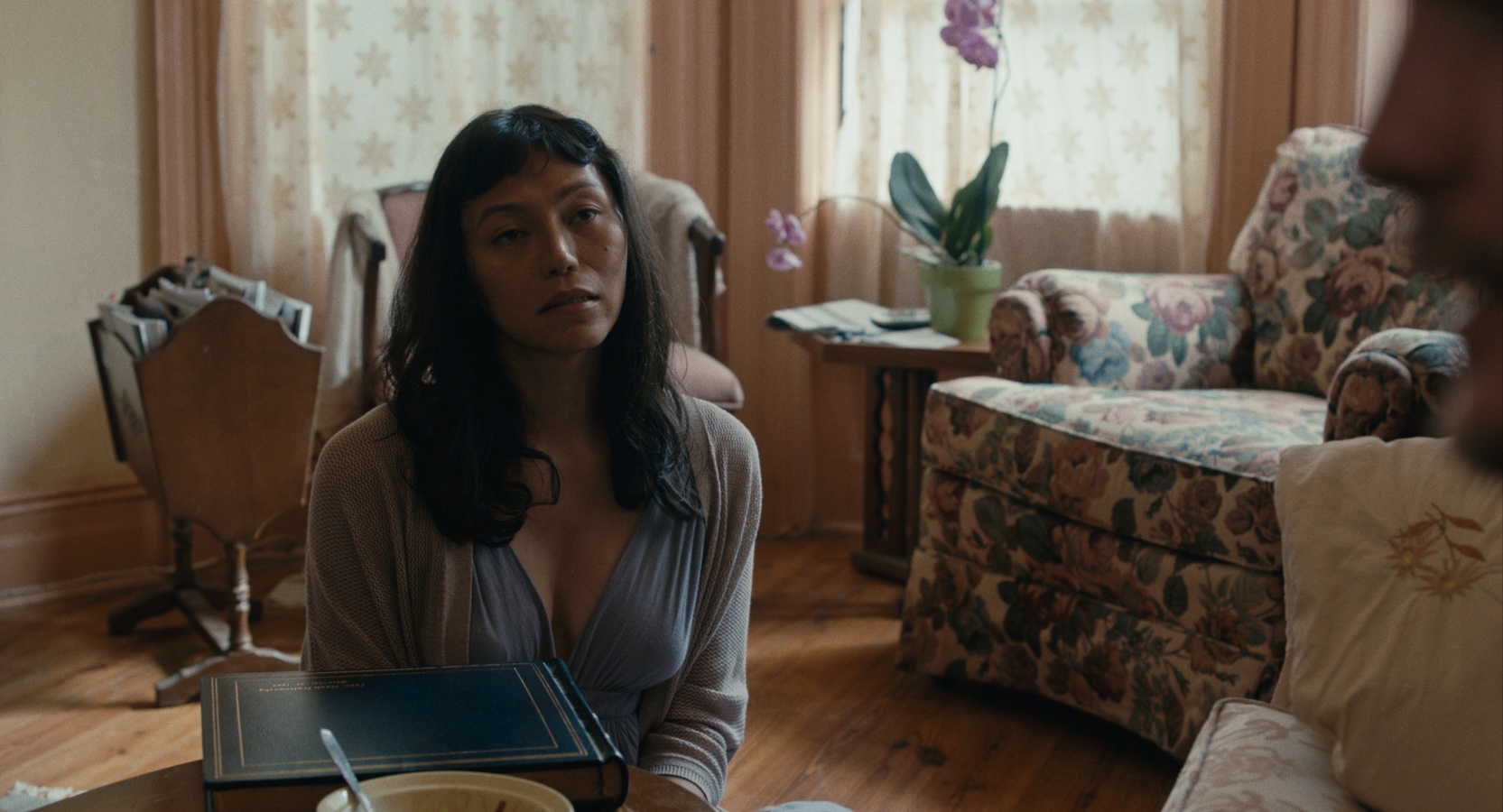Although the United States doesn’t have an official language, the Lingua Franca of Isabel Sandoval’s third feature-length refers to the English adopted by immigrants who arrive in America and need it to make their lives easier. However, one could argue it could also refer to the silences which often express much more of the characters’ heartaches and dreams than the English they use to communicate with each other in society.
The director stars as Olivia, an undocumented, transgender Filipina desperate to obtain the green card that would allow her to continue working in the United States. It’s not necessarily that she is in love with her job, although she’s exceptional and tender as the caretaker of Olga (Lynn Cohen), an elderly woman with dementia, who always seems to be expecting a call that will never come. What matters to Olivia is the relative security that the US offers her, and the income with which she’s able to provide for her family in Cebu.
Olivia dreams of finding love and marrying a man who will give her affection and US citizenship. When the film begins, Olivia attends the wedding of her friend Trixie (Ivory Aquino), who married a New Yorker out of love; but no such thing seems to be in the cards for Olivia, who recurs to paying someone to marry her. When her plan goes awry, she is left right where she started, except she’s spent money expecting an agreement to be fulfilled.
Sandoval’s insight into the experience of undocumented immigrants who are often exploited more than they’re allowed to “take advantage of the system,” makes Lingua Franca essential as a document of America in 2020. Although immigration has gained new prominence given the inhumane treatment and torture methods implemented by the current administration, the film reveals how this is merely a reaffirmation of the unwritten promise of xenophobia that has shaped the country since English colonizers first arrived.
It shows the ways in which immigrants make huge sacrifices to leave their home countries, sometimes acknowledging they might never see their loved ones again if it means they will be able to earn dollars to help them back home. Few scenes in films centered on an immigrant are as funny and haunting as those in which Olivia is woken up in the middle of the night by her mother calling from the Philippines. Although she could always send the call to voicemail, Olivia never misses a chance to speak with family. These phone calls are in many ways the only connection she has to anything similar to a family.
Then she meets Olga’s grandson, Alex (Eamon Farren), and the two begin an awkward but lovely courtship. It would be tempting to describe what follows in terms that would sound obvious, but it would also be a disservice to Sandoval’s meditative film, in which the fear of an ICE raid isn’t announced with bombast, but with a character simply turning around a corner.
The characters’ interior lives take precedence over the social issues Sandoval could’ve used to turn her work into a morality tale. Instead, Olivia’s immigration status and her gender identity aren’t the topics the film investigates, but elements that happen to be part of her world. Each of the principals in the film suggests enough of a backstory, just by the way they move in their world, that displays Sandoval’s restraint as a writer. She never highlights the obvious, which makes the film unpredictable without relying on manipulation.
The film’s greatest achievement is the effortlessness with which Sandoval captures several microcosms simultaneously happening in New York City: Olga’s home as her prison, Alex’s inability to fully open up, and ultimately Olivia’s permanent dual existence in the Philippines and NYC. Sandoval’s writing is naturalistic and she avoids adornment to deliver one of the most affecting romances in recent years. In Lingua Franca, she’s giving a stage to the essential voices currently being drowned out by those in power.
Lingua Franca is now on Netflix.

